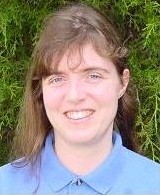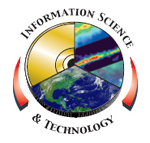
Please Note: The content on this page is not maintained after the colloquium event is completed. As such, some links may no longer be functional.
 Ella Atkins
Ella Atkins
Robust Robotic Explorers with Symbolic and Continuous Reasoning Capabilities
Wednesday, December 15, 2004
Building 3 Auditorium - 3:30 PM
(Refreshments at 3:00 PM)
Dr. Ella Atkins, will talk about Robust Robotic Explorers with Symbolic and Continuous Reasoning Capabilities. Autonomous or semi-autonomous robotic systems must be aware of task-level goals as well as their abilities to move in their physical environment. Traditional artificial intelligence architectures can efficiently schedule science observations on resource timelines and decompose exploration goals into a sequence of primitive tasks. However, the complex motions of the spacecraft and robotic systems required to execute these tasks are better described and optimized over differential equations that account for actuator and environmental forces and torques. As a result, onboard software has been partitioned into "symbolic" (AI) and "continuous" (guidance, navigation, and control) components with little common knowledge. This talk will describe Dr. Atkins' efforts to integrate these two technologies and apply them to Aerospace applications, focusing on recent work in which a cognitive architecture acts as an "automated grad student" supervising trajectory optimization processes. Dr. Atkins will describe ongoing efforts to incrementally increase level of automation for the University of Maryland's Ranger telerobotic servicer, and will conclude with a description of an ambitious joint project to develop a fully-autonomous robotic manipulation platform that will discover and collect samples from hydrothermal vent regions under the Arctic icecap.
Ella M. Atkins is an Assistant Professor in the Department of Aerospace Engineering at the University of Maryland, where she co-founded the Autonomous Vehicles Laboratory and is an active researcher in the Space Systems Laboratory and Alfred Gessow Rotorcraft Center. She holds B.S. and M. S. degrees in Aeronautics and Astronautics from the Massachusetts Institute of Technology and M.S. and Ph.D. degrees in Computer Science and Engineering from the University of Michigan. Her research integrates task-level planning with trajectory optimization algorithms for safety-critical robotic systems, spacecraft formation mission design, and robust flight vehicle operation. Dr. Atkins has written over 35 papers that develop and apply artificial intelligence, real-time systems, and trajectory planning technologies to Aerospace systems. Her research has been funded by the NSF, NASA, the Army Research Office, and the Maryland Industrial Partnerships program. She co-chaired the AAAI Spring Symposium on Robust Autonomy and was local program chair for the IEEE International Conference on Robotics and Automation. She serves on review panels from NSF and NASA and is a technical program co-chair of the new AIAA Infotech@Aerospace conference for 2005. She is a member of the AIAA Intelligent Systems technical committee, AAAI, IEEE Computer and Robotics & Automation Societies. She serves as the book review editor for the AIAA Journal of Aerospace Computing, Information, and Communication (JACIC) and is a private pilot.
IS&T Colloquium Committee Host: Karen Moe
